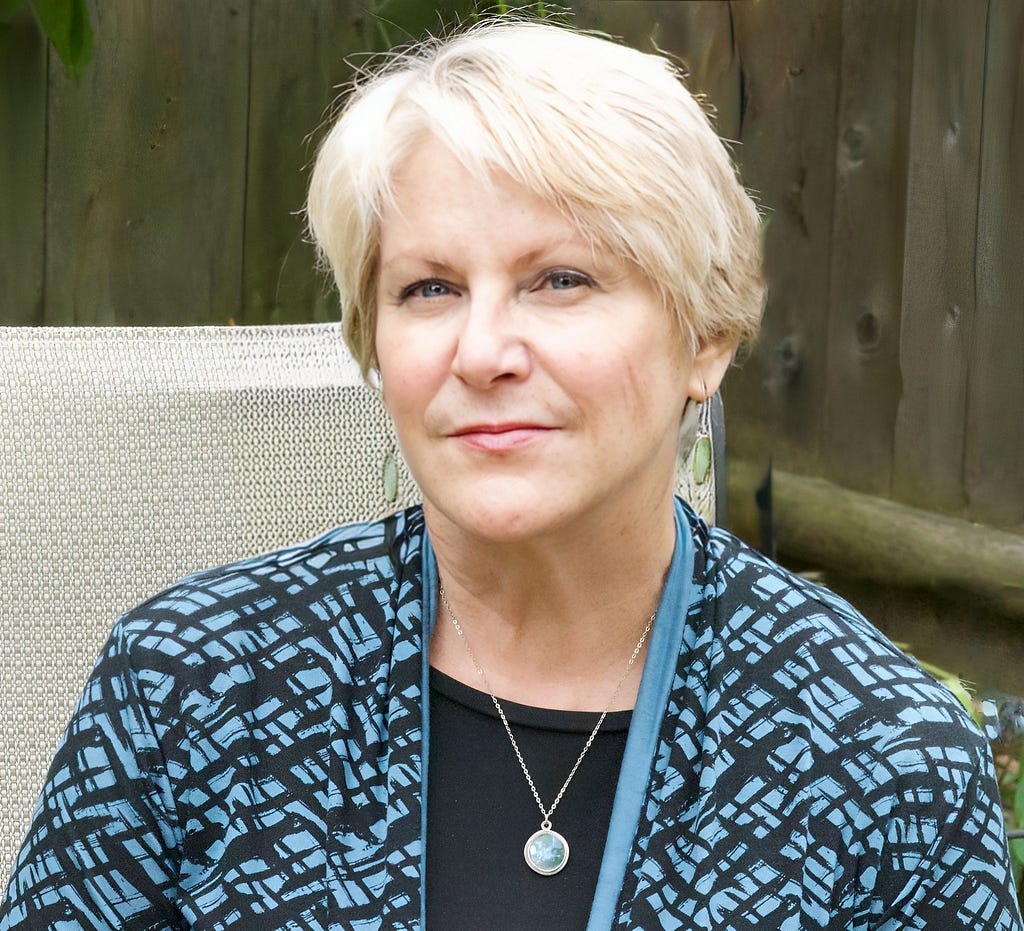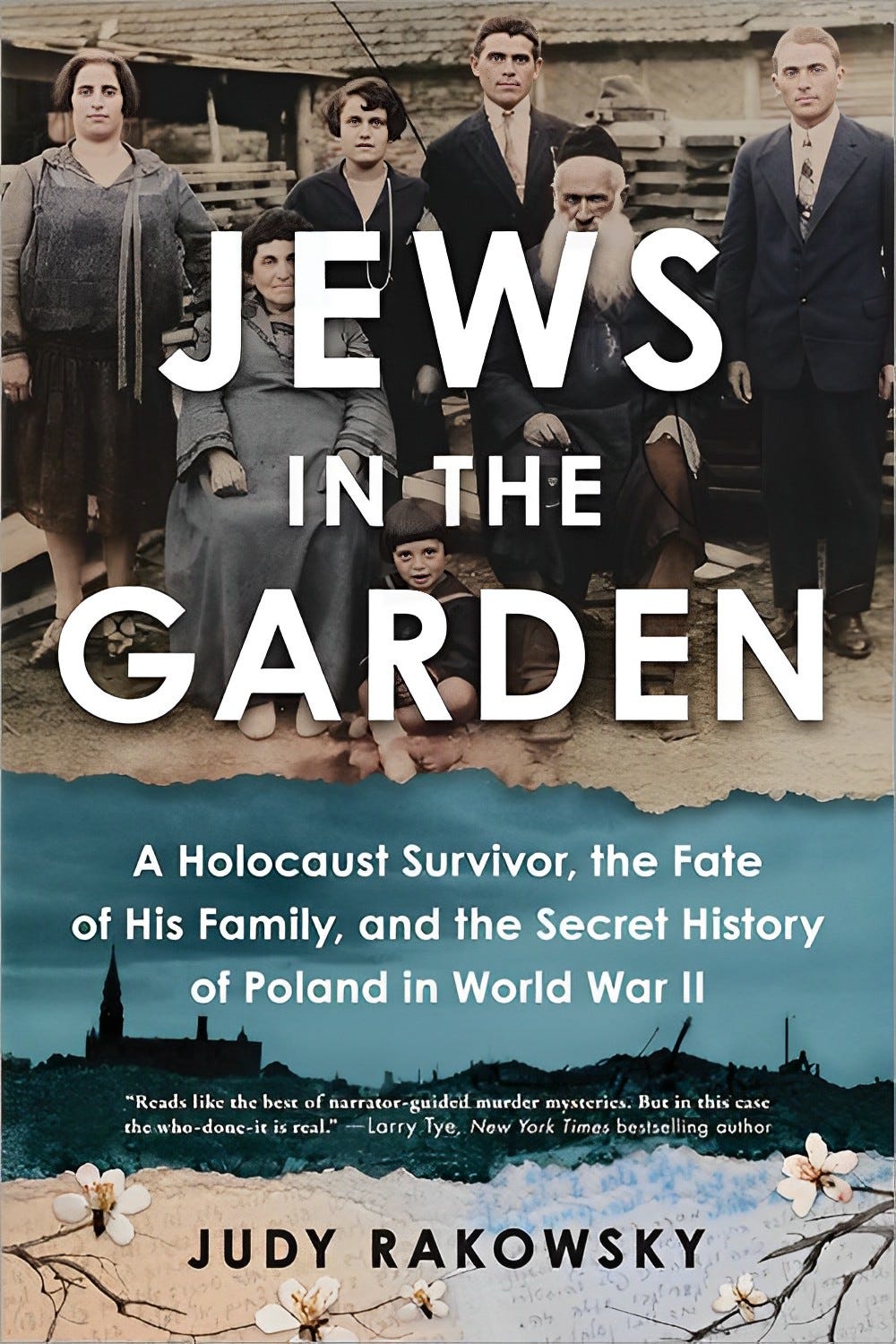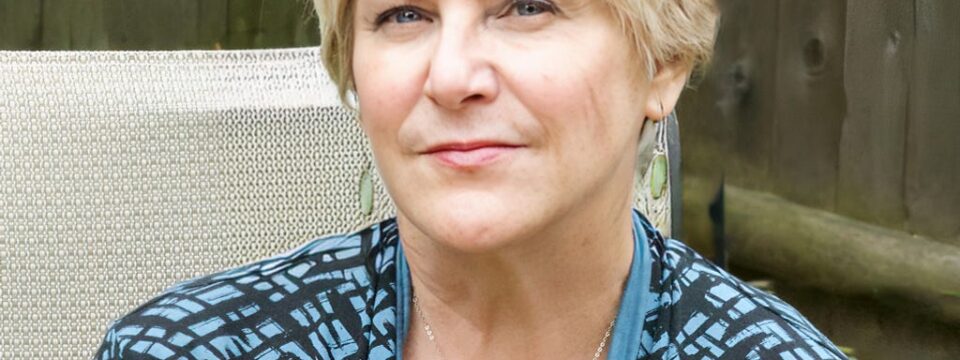
Always give someone a reason why they should share their truth or help you. The fact that you want to know something does not mean you are going to get answers.
As part of my series about “authors who are making an important social impact”, I had the pleasure of interviewing Judy Rakowsky.
Judy Rakowsky spent a three-decade-long journalism career at five metropolitan daily newspapers as an enterprising reporter and breaking news editor focused on crime and legal affairs. At the Boston Globe, the Providence Journal, and People Magazine, she broke stories on major issues of the day from organized crime to priest sex abuse, domestic violence, and online bullying. Along the way, she garnered awards for feature writing, sensitivity to crime victims, and enterprise reporting. Her debut book, Jews in the Garden (July 2023), chronicles her travels to Poland over three decades with her cousin, a Holocaust survivor, to learn what happened to their family during WWII and seek out the sole survivor of a deadly midnight massacre, a cousin who disappeared into history after the rest of her family was killed.
Thank you so much for joining us in this interview series! Before we dive into the main focus of our interview, our readers would love to “get to know you” a bit better. Can you tell us a bit about your childhood backstory?
I grew up in a small town in Ohio, with cows grazing across the street, the youngest of four children. My father was a first generation American whose parents had strong accents and lived a few blocks away. I grew up with older siblings reacting to the Vietnam War, civil rights and feminism. I could not wait to move to a bigger city, become a journalist and blend my love of writing with my curiosity about how things work or don’t and what makes people tick.
When you were younger, was there a book that you read that inspired you to take action or changed your life? Can you share a story about that?
I loved To Kill A Mockingbird and its lessons around justice and morality. Atticus Finch’s bravery and righteousness truly inspired me. I also absolutely inhaled every Nancy Drew mystery I got mostly as hand-me-downs, always imagining myself chasing clues and firing up the blue roadster. The combo set me up for the grownup game-changer: All The President’s Men. Like many of my generation of journalists, that book spurred my drive to dig and to follow facts to uncover corruption.
It has been said that our mistakes can be our greatest teachers. Can you share a story about the funniest mistake you made when you were first starting? Can you tell us what lesson you learned from that?
When I was starting out working for the student newspaper at University of Michigan, we got hit with a major snowstorm. I was heading out to a sledding hill and the phone rang. It was my editor — someone who went on to have a huge Pulitzer Prize winning career. A major snowstorm, she lectured, was not an occasion for fun and frolic, it was something the paper needed to cover and I should get out and start reporting on it. I never forgot that. I realized that journalists are never really off-duty.
Can you describe how you aim to make a significant social impact with your book?
This book, Jews in the Garden, grew out of my exploration of my family history and my cousin Sam’s remarkable survival of Nazi concentration camps. In seeking a survivor in Poland, we discovered a hidden history about how our relatives were killed during World War II. The resistance to steadfast inquiries trying to find a living relative turned out to be intentional. Then that resistance hardened into law in 2018, when the Polish government criminalized any description of Polish complicity in the Holocaust. That happened in the face of major academic studies documenting many such incidents. As a result, Poland has elevated the notion of national pride above presentations of true history. This is a very damaging trend that we see around the globe with book banning and mandating a historical narrative to omits key truths. I hope this personal story can lead to a balanced conversation about the costs of these practices and laws. Each voter and consumer has a role to play.
Can you share with us the most interesting story that you shared in your book?
Over many visits, I got to know the granddaughter of a Polish farmer who hid a family of our relatives for 18 months until they were murdered late in the war by fellow Poles. Over decades and generations, villagers have punished this family for harboring Jews. This wonderful woman grew up being taunted in school about the “Jews in the garden.” A deeply believing Catholic, she told me she ignores the gossip and the stigma. Her humanity melted my heart. Of our Jewish relatives who were slain in hiding, she said, “They only wanted to live.”
What was the “aha moment” or series of events that made you decide to bring your message to the greater world? Can you share a story about that?
I traveled with cousin Sam to Poland many times, seeking a surviving cousin whose family was killed in hiding. Sam thought he just needed people he knew growing up to help him track her down. I thought I could find government documents to aid in that effort. We kept hearing that Polish partisans were involved in her family’s murders as well as in the murders of another family of relatives hiding in another farm with brave and compassionate Poles. The aha moment came when I realized my requests were being denied because Poles were the killers. Then I obtained court records with testimony from the killers, some of whom argued for leniency because they were such accomplished members of the underground. When Poland made it illegal to publish any insinuation of Polish complicity in the Holocaust, I thought a wider audience needed to know.
Without sharing specific names, can you tell us a story about a particular individual who was impacted or helped by your cause?
Bringing out the truth really affected the great grandson of the people who tried to save one family of our relatives. They hid them for 18 months and they were still murdered. But learning the truth through records I obtained had a deep effect on the great grandson, who is now committed to passing down this truth, rather than supporting the memory law in the name of national pride. It’s not just about who killed our relatives, but how we face difficult truths and move on. I saw that effect on this young man and I hope the sincerity of this goal and this story affects others similarly.
Are there three things the community/society/politicians can do to help you address the root of the problem you are trying to solve?
Yes. 1) Oppose book bannings, memory laws and other efforts that deny access to a cross section of ideas and information. 2) Encourage civic engagement and exchanges. 3) Promote fact-based content.
How do you define “Leadership”? Can you explain what you mean or give an example?
Leadership is the courage to face facts, be accountable and learn from new information, resisting the temptation to believe your opinion is the only correct view.

What are your “5 things I wish someone told me when I first started” and why? Please share a story or example for each.
- Listen and make sure you understand what people say. Many times, I did not understand the gaps in my knowledge until I started writing, when it was too late to ask a follow up question.
- Check the spelling of names again and again and one more time. When I got to the Providence Journal, I had to learn the new accent. I didn’t think I needed to ask a fellow who called himself Cotter how to spell his name. But it turned out to be Carter.
- Operate like you are on deadline even if you aren’t. I always found that you can do a lot in a short time on deadline, but longer deadlines can lead to procrastination. But if you pretend the deadline is near you won’t delay.
- Be kind to everyone and consider what they are going through. I learned the hard way that my hurry made no difference to an admin or clerk who was getting the same pay, whether or not they helped me.
- Always give someone a reason why they should share their truth or help you. The fact that you want to know something does not mean you are going to get answers.
Can you please give us your favorite “Life Lesson Quote”? Can you share how that was relevant to you in your life?
“It is not up to you to finish the task, but you are not free to avoid it.” from a collection of wisdom from the Jewish Talmudic sages, in particular Rabbi Tarfon.
The enormity of so many tasks can make it difficult to even start. But it’s incredible what one can accomplish if you chip away little by little doing what you can. This applies to Jews in the Garden, which required a tremendous, sustained effort, and also it is part of the inspiration of my cousin Sam who has been talking to students for so many years about his life experiences. He refuses to be discouraged by the trends in anti-Semitism and intolerance. We cannot quit pressing the point of compassion and humanity.
Is there a person in the world, or in the US with whom you would like to have a private breakfast or lunch with, and why? He or she might just see this, especially if we tag them. 🙂
Deborah Lipstadt, U.S. Envoy on Anti-Semitism.
How can our readers further follow your work online?
I am on Facebook at Judy L Rakowsky and Instagram judyrak58.
Social Impact Authors: How & Why Author Judy Rakowsky Is Helping To Change Our World was originally published in Authority Magazine on Medium, where people are continuing the conversation by highlighting and responding to this story.
